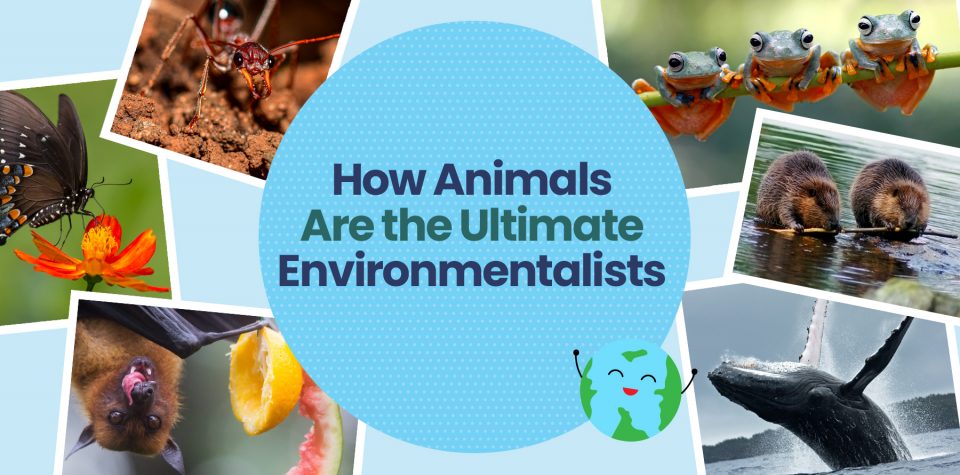
How Animals are the Ultimate Environmentalists
Believe it or not, the Earth, its ecosystems, and all inhabiting creatures are connected to one another! From sharks to algae, ants to beavers, we all play a role in maintaining the Earth’s balance. As we think about Earth Day and how we can contribute to keeping our planet healthy, we can also thank the lesser-known heroes of conservation. These 10 animals have super important roles in the Earth’s ecosystems. Let’s take a look at how they are the ultimate advocates for the Earth!
Dirt Dwellers
Ants
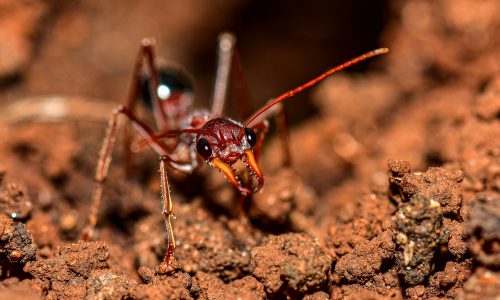
Although tiny, ants are mighty! Ants are critical to the process of decomposition. During decomposition, dead organic materials are broken down into simpler matter such as water, carbon dioxide, or sugars. Once broken down, the simple molecules get absorbed into the soil and keep it healthy for growing plants and food. As ants dig tunnels, they introduce air to the soil and recycle the decomposed nutrients. Because they keep the soil healthy, ants reduce farmers’ need for added chemicals, which leads to healthier, pesticide-free foods for us.
Termites
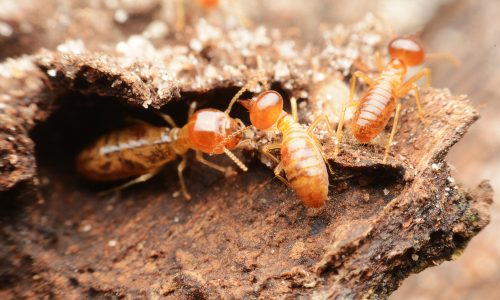
Termites are nature’s cleanup crew. They are both detritivores and decomposers, which means they eat decomposing matter and contribute to recycling ecosystem energy. A termite’s diet consists of roots, bark, wood, and stems. They are able to break down these otherwise tough plant materials and recycle them into new soil. The next time you see autumn leaves and tree branches littering the ground, you’ll know that the termites are in for a feast!
Flighty Friends
Bats
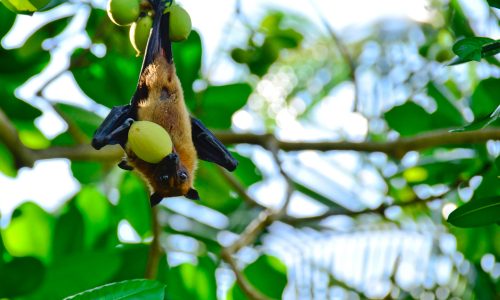
No need to call pest control—bats have got it covered. Insectivorous bats (bats that eat insects) consume millions of pests every year. Their insect diet helps control bug populations and protects all kinds of plants from diseases. Fructivorous bats (bats that eat fruits) also play a key role in dispersing plant seeds and restoring forests. They are especially effective at spreading the seeds of avocados, cashews, dates, and figs, which is why they are sometimes called the “farmers of the tropics.”
Birds
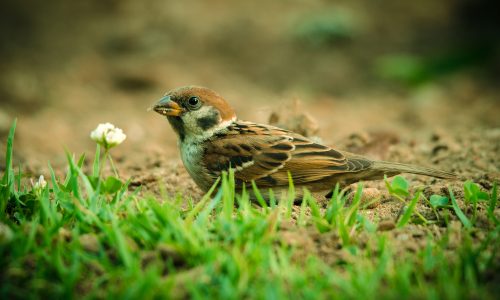
When it comes to regulating the Earth’s ecosystems, birds do a little bit of it all. They help in forest decomposition, nutrient recycling, plant pollination, seed dispersal, and pest control. From digging in the dirt to chowing on tiny insects, birds play an essential role in maintaining the Earth’s balance.
Butterflies
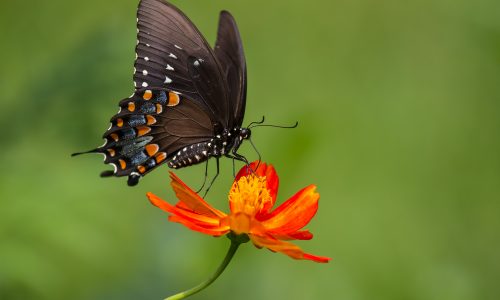
Butterflies aren’t just beautiful, they also are huge pollinators! When they land on flowers to drink nectar, they get pollen dust on their feet. As they flit from flower to flower, they transfer the pollen to different plants which helps them reproduce.
Land Lodgers
Frogs
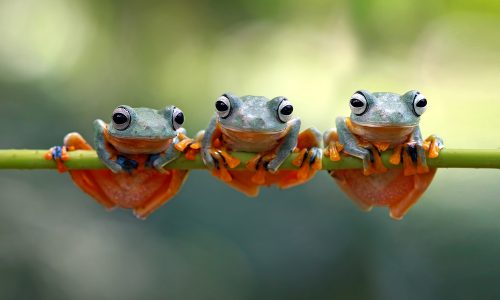
Frogs are bioindicators, meaning they reflect the health of their ecosystem. A frog’s skin is very thin, so substances in their habitat get absorbed into their bodies. If there are a lot of frogs in one location, it means the ecosystem is healthy. If a frog-friendly environment does not have many frogs around, it’s an indication that something in the ecosystem is out of balance. Additionally, because frogs live both in and out of the water, they are able to indicate contamination dilemmas for both types of habitats.
Beavers
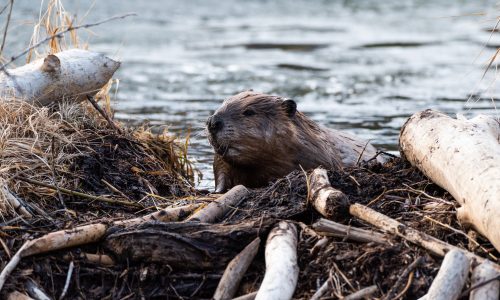
Beavers are known for gnawing on wood and building dams. Their dams are essential to the Earth; they help prevent floods, droughts, and even forest fires. Beaver dams create small ponds of water, which significantly affects the likelihood of floods and droughts. During heavy rain periods, the dams slow (but don’t completely stop) the flow of water, which acts against flooding. During dry summer months, the leaky dams slowly release water, helping prevent water shortages.
Squirrels
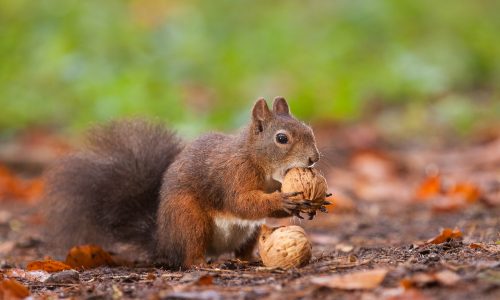
We can thank squirrels for the abundance of trees we see around us. Squirrels spend all day collecting and stashing nuts around various landscapes, from yards to forests. Because they collect and hide so many nuts and seeds, they often forget where they’ve hidden some of their food. The forgotten nuts and seeds are then able to take root and eventually grow into trees. Trees are unable to spread their nuts themselves, so without squirrels, they wouldn’t be able to reproduce!
Ocean Occupants
Sharks
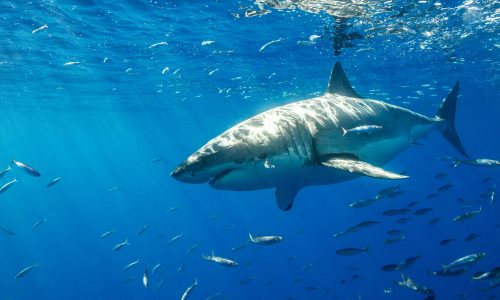
As an apex, or top, predator, sharks keep marine life diverse. Because sharks have a varied diet, they regulate the population among different species. Without sharks, it’s entirely possible that one species could take over a food resource and push other species out, causing them to go into extinction. In addition, sharks help control disease among ocean life. Sharks tend to prey on weak, old, or sick fish, which prevents diseases from spreading throughout the marine population.
Whales
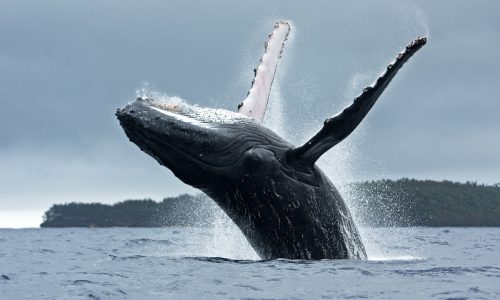
Whales play an important role in maintaining ocean ecosystems. Their poop helps fertilize algae, a plant that is crucial to the survival of the ocean. During photosynthesis, algae produces a significant portion of the oxygen in Earth’s atmosphere. Many different sea creatures also depend on algae as a food source. To grow, algae needs nitrogen, but because it grows at the water’s surface and nutrients tend to sink, nitrogen is scarce. Luckily, whale poop contains a ton of nitrogen. It also floats, which allows it to stay at the surface and give algae the nutrients it needs.
If your child loves animals, check out our Animals page for more activities, crafts, and fun facts.
